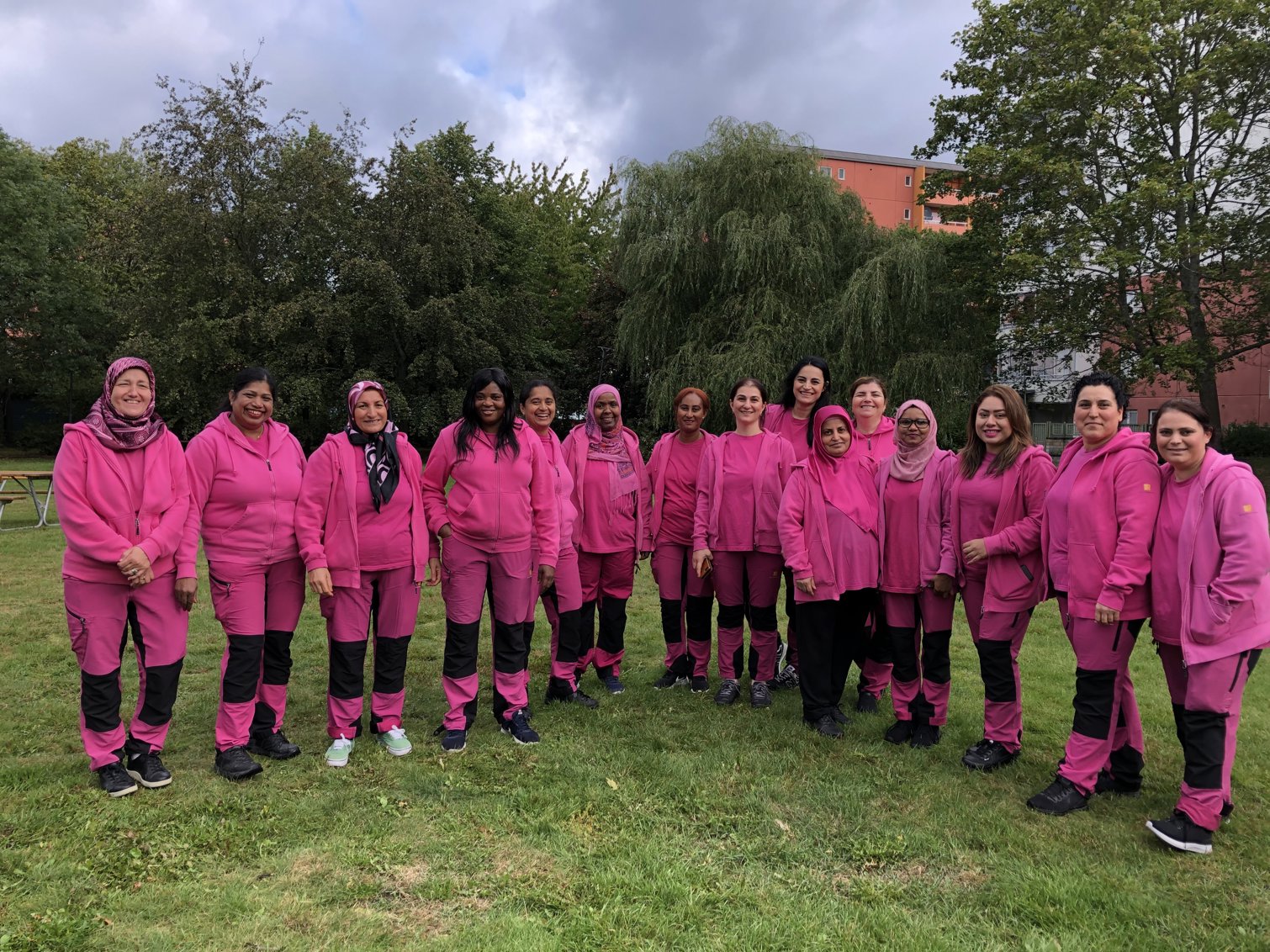
This project started as a gender equality initiative in 2017, when nine unemployed immigrant women were employed for one year to clean public spaces in apartment blocks in their neighborhood (in Botkyrka municipality, Stockholm region, Sweden).

At the same time, they were offered classes in the Swedish language and culture, healthcare and fitness, etc. After one year the project was integrated into the regular operations of the municipal housing company and the women were offered permanent employment. Since then the project has been scaled up - at the time of writing this report, there are 30 women employed working in three neighborhoods.
The goal is to have 100 women employed by 2025. Though being based on a rather simple idea, the project is considered innovative in the residential sector as it manages to both improve the economic and social status among unemployed immigrant women in vulnerable areas and at the same time creating a more pleasant environment for all residents in the neighborhood.
"We managed to improve equality and economical standard among residents."
AB Botkyrkabyggen , Unemployment agency in the municipality of Botkyrka.
AB Botkyrkabyggen
Sustainable home environment for all people living in the municipality.
"It is actually possible to align social and economical sustainability - that’s fantastic! We managed to Improve equality and economical standard among residents and at the same increase the quality of their neighborhood. You need to open your mind and believe that you can make a change."
Susanne Axelsson Heldring, HR Director, Botkyrkabyggen AB
Societal trends: Migration, Womenomics, Experiences
This case can be linked to four of the SDGs: 1 - No Poverty - by employing these women, their economic situation improved. 4 - Quality Education - by concurrently educating them. 5 - Gender Equality - increasing the women's’ economic and social status will hopefully contribute to improved equality between sexes. Finally, 10 - Reduced inequalities - the project may help to reduce inequalities between the municipalities in the Stockholm region.
Interview: Susanne Axelsson Heldring, HR Director, Botkyrkabyggen AB